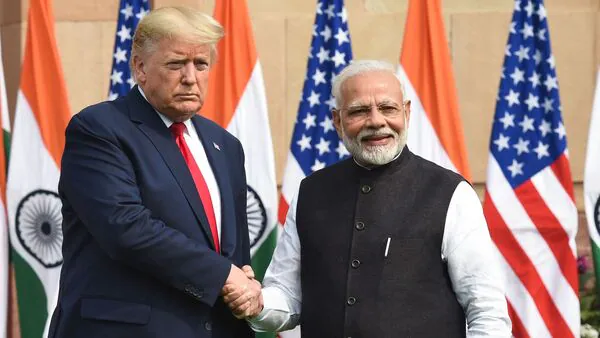Despite 50% US tariffs and criticism over Russian oil imports, both nations signal willingness to resolve differences and strengthen ties.
Short Summary (350 characters):
Despite a steep 50% tariff from the US and diplomatic friction over Russian oil imports, India and the US maintain open communication. While trade negotiations stall, both nations recognize their mutual strategic and economic importance, suggesting a path toward reconciliation.
India–US Trade Relations Under Pressure
Tariff escalation has placed fresh strain on India–US trade ties. The 50% duty includes a 25% penalty on India’s Russian oil imports, intensifying diplomatic concerns.
- Treasury Secretary Scott Bessent emphasized the complex nature of the relationship but remained optimistic: “At the end of the day, we will come together.”
- Both countries recognize their global standing—India as the largest democracy, the US as the largest economy—creating a strategic necessity to cooperate.
Russian Oil Imports: A Point of Contention
India’s continued import of Russian crude oil has sparked criticism from Washington.
- Bessent accused India of profiteering, despite broader geopolitical concerns related to the Russia–Ukraine conflict.
- The tariff hike reflects mounting pressure on India to align more closely with Western sanctions.
Communication Channels Remain Open
Despite the diplomatic chill, ongoing dialogue continues between the two governments.
- A government official told PTI that the impact on exports is likely manageable due to India’s diverse export portfolio.
- The Ministry of External Affairs confirmed that a 2+2 Intersessional Dialogue was held on August 25, focusing on strategic and regional security cooperation.
Trade Negotiations: Stalled but Not Dead
Trade talks, which began with promise, have now hit a roadblock.
- India has been accused of being “performative” during negotiations.
- The sixth round of trade talks, scheduled for August 25, was canceled following the tariff hike announcement.
- Key sticking points include India’s resistance to US dairy and genetically-modified (GM) crops, citing domestic agricultural sensitivities.
The US Trade Deficit Argument
Bessent highlighted the US trade deficit with India, attributing it partly to India’s high tariffs on US goods.
- He remarked that the deficit country holds more leverage in trade disputes.
- India, as a surplus exporter, should be more concerned about potential fallout, according to Bessent.
The Currency Question: Rupee vs. Dollar
On currency dynamics, Bessent dismissed concerns about India shifting to the rupee for international trade settlements.
- He noted that the rupee is not a serious contender to challenge the dollar’s reserve currency status.










